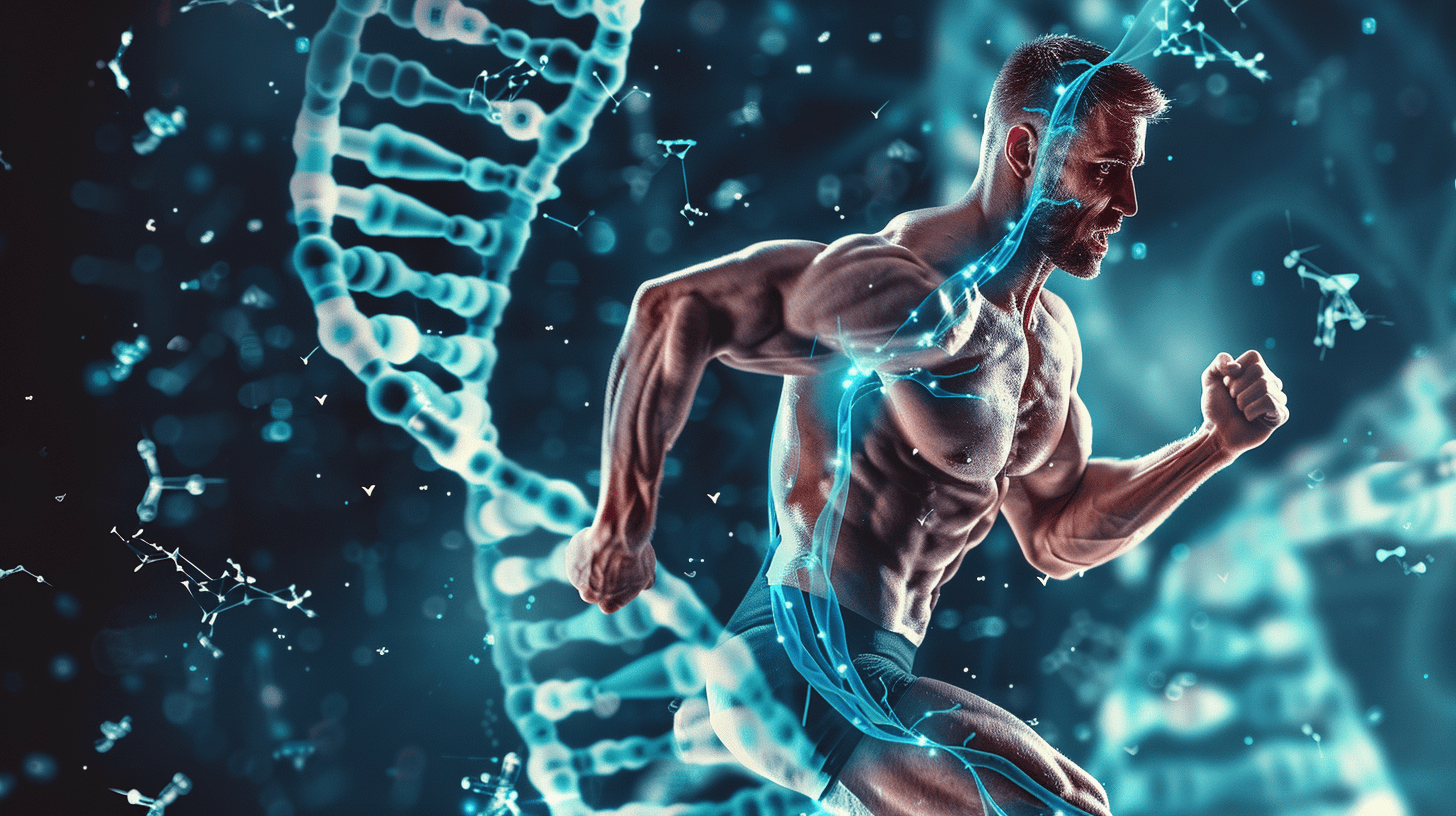In the pursuit of achieving optimal fitness levels, nutrition plays a pivotal role. While there’s no one-size-fits-all approach to diet and fitness, recent advancements in personalized nutrition have opened up exciting avenues for individuals looking to enhance their fitness journeys. DNA-based personalized nutrition, in particular, has emerged as a cutting-edge solution tailored to individual genetic profiles, offering insights that can significantly impact fitness outcomes. This tailored approach to nutrition not only addresses general dietary needs but also considers genetic predispositions, thereby maximizing the potential for “nutrition improve fitness” in a way that traditional methods cannot achieve.
Understanding the Link Between Nutrition and Fitness
Before delving into the realm of DNA-based personalized nutrition, it’s crucial to grasp the fundamental relationship between nutrition and fitness. Put simply, the food we consume serves as the fuel for our bodies, influencing everything from energy levels and muscle growth to overall performance during physical activities. Whether you’re aiming to build muscle, improve endurance, or shed excess weight, optimizing your nutritional intake is key to achieving your fitness goals.
Can Personalized Nutrition Improve Fitness? The Role of Genetics in Nutrition and Fitness
Genetics play a significant role in determining how our bodies respond to different nutrients and exercise regimens. Each individual possesses a unique genetic makeup that influences factors such as metabolism, nutrient absorption, and susceptibility to certain dietary-related conditions. Understanding these genetic predispositions can provide valuable insights into crafting personalized nutrition plans that are tailored to individual needs and goals.

The Rise of DNA-Based Personalized Nutrition
Traditional approaches to nutrition and fitness often adopt a one-size-fits-all mentality, overlooking the intricate genetic variations among individuals. However, with advances in genetic testing and analysis, it’s now possible to gain deeper insights into how our unique genetic profiles influence our dietary requirements and fitness outcomes. DNA-based personalized nutrition utilizes this information to design customized dietary plans that are optimized for each person’s genetic predispositions.
Tailoring Nutrition to Your Genetic Blueprint
By analyzing an individual’s DNA, personalized nutrition programs can identify specific genetic markers that impact various aspects of nutrition and fitness. These markers may reveal insights into how the body metabolizes carbohydrates, fats, and proteins, as well as identify potential deficiencies in vitamins and minerals. Armed with this knowledge, nutritionists and fitness professionals can devise targeted dietary recommendations that align with an individual’s genetic blueprint, maximizing the effectiveness of their nutrition plan.
Optimizing Performance and Recovery
One of the primary objectives of personalized nutrition is to optimize both performance and recovery. By tailoring dietary recommendations to match an individual’s genetic profile, personalized nutrition programs can help enhance energy levels, improve muscle recovery, and minimize the risk of injury. For athletes and fitness enthusiasts alike, this personalized approach can lead to noticeable improvements in overall performance and endurance, enabling them to push past previous limitations and reach new heights in their fitness journey.
Breaking Through Plateaus with Precision Nutrition
Many individuals encounter frustrating plateaus in their fitness endeavors, where progress seems to stall despite consistent effort. DNA-based personalized nutrition offers a solution by providing targeted interventions that address underlying genetic factors contributing to these plateaus. Whether it’s adjusting macronutrient ratios, fine-tuning nutrient timing, or identifying specific dietary sensitivities, personalized nutrition empowers individuals to break through barriers and continue making strides towards their fitness goals.

The Importance of Long-Term Sustainability
While DNA-based personalized nutrition offers promising insights into optimizing fitness outcomes, it’s essential to approach it with a focus on long-term sustainability. Building healthy eating habits and lifestyle practices that align with your genetic predispositions is key to achieving lasting results. Moreover, personalized nutrition should complement other aspects of a comprehensive fitness regimen, including regular exercise, adequate rest, and stress management.
Conclusion: Harnessing the Power of Personalized Nutrition for Enhanced Fitness
In the quest for improved fitness, nutrition serves as a cornerstone for success. By leveraging the insights provided by DNA-based personalized nutrition, individuals can unlock their full potential and achieve superior fitness outcomes. From optimizing performance and recovery to breaking through plateaus, personalized nutrition offers a tailored approach that aligns with each individual’s unique genetic makeup. As we continue to unravel the intricate interplay between genetics, nutrition, and fitness, personalized approaches hold the promise of revolutionizing the way we approach health and wellness. Embracing personalized nutrition empowers individuals to take control of their fitness journeys and embark on a path towards lifelong vitality and well-being.
In conclusion, DNA-based personalized nutrition represents a groundbreaking approach to improving fitness outcomes by tailoring dietary recommendations to individual genetic profiles. By understanding how our unique genetic makeup influences our nutritional needs and fitness responses, personalized nutrition programs can provide targeted interventions that optimize performance, enhance recovery, and break through plateaus. This tailored approach to nutrition not only addresses general dietary needs but also considers genetic predispositions, thereby maximizing the potential for personalized nutrition to improve fitness. Additionally, by mitigating potential nutrient deficiencies and supporting optimal muscle recovery, personalized nutrition plays a crucial role in preventing fitness-related injuries, ensuring individuals can pursue their fitness goals safely and effectively. As we continue to unravel the complexities of genetics and nutrition, personalized approaches hold the key to unlocking our full potential in the pursuit of optimal health and fitness.
